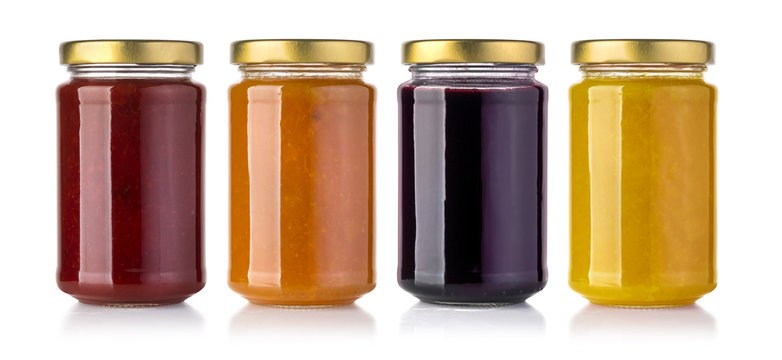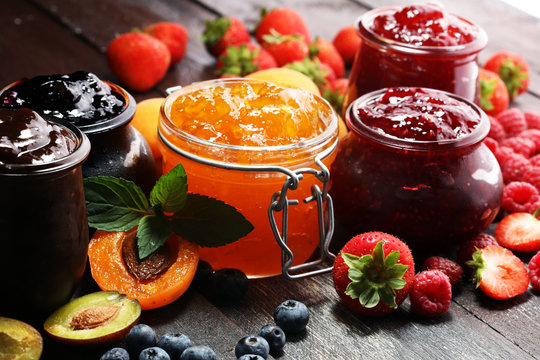Updates:
A forum for everyone🌍
A forum for everyone🌍
-
 Jeff Bezos 'to marry' in extravagant $600m Aspen service
by Vamvick
Jeff Bezos 'to marry' in extravagant $600m Aspen service
by Vamvick
[Dec 23, 2024, 04:30 AM] -
 List of calling codes for different countries
by Yace
List of calling codes for different countries
by Yace
[Dec 22, 2024, 07:40 AM] -
 1xBet UAE cricket conjoin betting
by Bryansoync
1xBet UAE cricket conjoin betting
by Bryansoync
[Dec 21, 2024, 10:05 PM] -
 Why India, a country of 1.45 billion wants more kid
by Brookad
Why India, a country of 1.45 billion wants more kid
by Brookad
[Dec 20, 2024, 08:21 AM] -
 Are you eating to the point of arriving at your Fitness objectives?
by Ruthk
Are you eating to the point of arriving at your Fitness objectives?
by Ruthk
[Dec 20, 2024, 08:17 AM] -
 Streaming or downloading : which consume the most data?
by Congra
Streaming or downloading : which consume the most data?
by Congra
[Dec 20, 2024, 07:41 AM] -
 AI Could Be Causing Scientists To Be Less Creative
by Shereefah
AI Could Be Causing Scientists To Be Less Creative
by Shereefah
[Dec 17, 2024, 02:29 AM] -
 IQ is a very unreliable means of assessing intelligence
by Shereefah
IQ is a very unreliable means of assessing intelligence
by Shereefah
[Dec 17, 2024, 02:20 AM] -
 Reading Really Reshapes The Brain — This is The way It Changes Your Mind
by Yace
Reading Really Reshapes The Brain — This is The way It Changes Your Mind
by Yace
[Dec 15, 2024, 10:07 AM] -
 What does it mean to be a Judging or Perceiving type in MBTI?
by Ballerboy
What does it mean to be a Judging or Perceiving type in MBTI?
by Ballerboy
[Dec 14, 2024, 03:43 AM] -
 Balanced, significant breakfast shown to help wellbeing and moderate calorie
by Ruthk
Balanced, significant breakfast shown to help wellbeing and moderate calorie
by Ruthk
[Dec 13, 2024, 04:33 AM] -
 Man who was swallowed alive by whale spoke out thereafter
by Yace
Man who was swallowed alive by whale spoke out thereafter
by Yace
[Dec 11, 2024, 07:18 AM] -
 Who else got this message from Temu?
by Yace
Who else got this message from Temu?
by Yace
[Dec 11, 2024, 06:44 AM] -
 Ai can't replace human intelligence, says TATA Sons Chairman N. Chandrasekaran
by Yace
Ai can't replace human intelligence, says TATA Sons Chairman N. Chandrasekaran
by Yace
[Dec 10, 2024, 06:59 AM] -
 Ghana's Previous President John Dramani Mahama Won The Country's Election Again
by Rocco
Ghana's Previous President John Dramani Mahama Won The Country's Election Again
by Rocco
[Dec 08, 2024, 09:36 PM] -
 My baby daddy and manager ruined my life - Olajumoke the bread seller
by Rocco
My baby daddy and manager ruined my life - Olajumoke the bread seller
by Rocco
[Dec 07, 2024, 12:36 PM] -
 Muhammad has become the most popular name in England and Wales among newborn boys
by Urguy
Muhammad has become the most popular name in England and Wales among newborn boys
by Urguy
[Dec 07, 2024, 06:35 AM] -
 Pregnant Women asked to get whooping cough vaccine
by Ruthk
Pregnant Women asked to get whooping cough vaccine
by Ruthk
[Dec 07, 2024, 03:02 AM] -
 6 Reasons Your Dishwasher Scents So Awful — and How to Prevent It
by Ruthk
6 Reasons Your Dishwasher Scents So Awful — and How to Prevent It
by Ruthk
[Dec 07, 2024, 02:31 AM] -
 Bitcoin hits $100,000 achievement level as Trump-filled rally arrives new levels
by Shereefah
Bitcoin hits $100,000 achievement level as Trump-filled rally arrives new levels
by Shereefah
[Dec 05, 2024, 04:37 AM]
Posted by Ruthk
- Sep 07, 2024, 09:31 PM

Let's explore the differences between jam and preserves.
Toppings frequently incline towards exquisite flavors — think hot sauce, soy sauce, mustard, grill sauce, and ketchup. While these sauces could have a smidgen of pleasantness, they are essentially exquisite. Natural product spreads, nonetheless, are intrinsically sweet. Whether you appreciate preserves, jams, marmalade, or jellies, they generally offer a sweet flavor. These organic product spreads are adaptable, ideal for toast, sandwiches, heated merchandise, and breakfast things. Here is a more intensive glance at the differentiations between jam and preserves.
What Is Jam?
 Jam is a sweet spread produced using squashed fruit, sugar, and an acid like lemon juice. It could likewise incorporate salt to adjust the pleasantness and gelatin, a characteristic fiber that thickens the blend. In spite of the fact that jam is a kind of protect because of the sugar going about as an additive, financially created sticks frequently have extra elements for conservation. Basically, jam comprises of crushed fruit products, sugar, lemon juice, and here and there salt, however locally acquired assortments may be more complex.
Jam is a sweet spread produced using squashed fruit, sugar, and an acid like lemon juice. It could likewise incorporate salt to adjust the pleasantness and gelatin, a characteristic fiber that thickens the blend. In spite of the fact that jam is a kind of protect because of the sugar going about as an additive, financially created sticks frequently have extra elements for conservation. Basically, jam comprises of crushed fruit products, sugar, lemon juice, and here and there salt, however locally acquired assortments may be more complex.Regarding surface, jam is for the most part thick however not the thickest among organic product spreads.It can at first be slight, yet gelatin makes it thicken. When warmed, jam can become runnier. It frequently has a somewhat stout surface, with pieces of natural product, seeds, or strips. This stoutness can make it harder to spread.
Taste and Sugar Content of Jam
Jam is eminently sweet because of its high added sugar content. The FDA directs jam to guarantee it contains somewhere around 45% leafy foods sugar, which adds to its articulated pleasantness. Along these lines, jam ought to be consumed with some restraint.
What Are Preserves?
 The term "preserves" can be a general class as entailing, jams, marmalade, jelly and other organic fruit product spreads.
The term "preserves" can be a general class as entailing, jams, marmalade, jelly and other organic fruit product spreads.Specifically, preserves are sweet spreads that are rack stable and can be utilized as toppings. They are described by their consideration of bigger fruit pieces or even entire fruit products, which can make them very chunky.
Preserves frequently come in a sweet, jelly-like syrup and could likewise contain gelatin. Because of their higher natural product content, they will generally have enormous natural product pieces, making them thick and fairly precarious to spread.
Preserves can be utilized much the same way to jams yet are especially helpful as marinades or coatings due to their sugary consistency.
Comparing Jam and Preserves
Both jam and preserves are sweet, natural product based spreads with a thick consistency, however they vary in more ways than one. Preserves contain whole fruit than jam, which is by and large purposes squashed or mashed organic product. This makes preserves chunkier and more organic product thick, giving them a possibly more grounded organic product flavor.
Then again, jams are better since they contain more sugar. Although the two spreads are sweet, jams have a higher sugar content, while preserves frequently incorporate a thicker, jellied syrup.
Sugar Content in Jam and Preserves
The contrast in sugar content between jam and preserves isn't critically important. Jam for the most part contains more sugar because of its guideline expecting no less than 55% sugar. Preserves, controlled by their solvent solids content (somewhere around 65%), ordinarily have less added sugar since they incorporate more fruits.
For those worried about sugar consumption, utilizing jams or preserves sparingly and picking variants with decreased added sugars can be advantageous.
Consistency and Utilizations
Jam and preserves have comparable thicknesses however differ in surface. Preserves are normally thicker because of the entire organic product pieces, while jam, however isn't guaranteed of much thickness. Both can be utilized on toast, sandwiches, and heated products, or integrated into flavorful recipes like marinades and coatings. They can likewise supplement charcuterie sheets with cheeses and meats. Preserves are frequently viewed as more adaptable because of their smoother consistency.
Substituting Jam for Preserves
Since jam is a kind of preserve, they can frequently be utilized conversely, particularly as spreads. Be that as it may, subbing one for the other could influence your recipe because of contrasts in pleasantness and surface. Jam's higher pleasantness could make a dish excessively sweet on the off chance that it's intended to incorporate preserves, while the thicker consistency of preserves might require diminishing whenever utilized as a substitute for jam.
In numerous recipes, jam and preserves can supplant each other for certain changes, remembering the unpretentious contrasts in flavor and surface.
